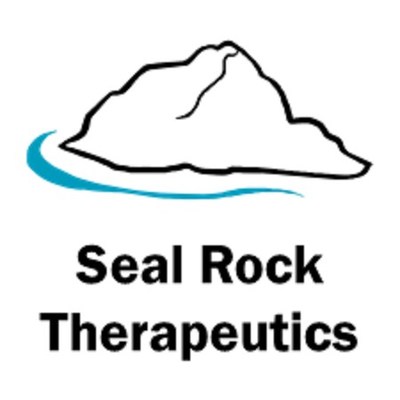Seal Rock Therapeutics, Inc., a late-preclinical stage biotechnology company developing first-in-class and best-in-class treatments for severe liver diseases with limited or no available therapies, today announced the presentation of data demonstrating comparative efficacy and pharmacokinetic findings on SRT-015, a second-generation,
|
SEATTLE, Nov. 16, 2020 /PRNewswire/ -- Seal Rock Therapeutics, Inc., a late-preclinical stage biotechnology company developing first-in-class and best-in-class treatments for severe liver diseases with limited or no available therapies, today announced the presentation of data demonstrating comparative efficacy and pharmacokinetic findings on SRT-015, a second-generation, liver-selective apoptosis signal-regulating kinase (ASK1) inhibitor for non-alcoholic steatohepatitis (NASH) and other liver diseases. Findings were presented in two poster presentations at The Liver Meeting® 2020, the Annual Meeting of the American Association for the Study of Liver Diseases (AASLD). "SRT-015 is now positioned to be the first ASK1 inhibitor to show true clinical efficacy in NASH. Our data show that SRT-015 was highly efficacious in a well-respected NASH model, while selonsertib at a clinically relevant dose was not," said Neil McDonnell, Chief Executive Officer of Seal Rock Therapeutics. "With this superior efficacy data and an optimal safety profile shown in recent toxicology studies, we now have everything needed to file an IND on SRT-015 and are preparing to begin clinical trials in early 2021." Both presentations demonstrate superior pharmacological properties of SRT-015 compared to other ASK1 inhibitors, including selonsertib, and provide potential explanations for the failure of selonsertib in clinical trials. Data were presented showing substantial improvement of SRT-015-treated animals in the DIO-NASH (Gubra) mouse model. In contrast, selonsertib, at a clinically relevant dose, showed no efficacy. Additional data shows consistent inhibition of inflammation, fibrosis, and apoptosis with SRT-015 that was not observed with other ASK1 inhibitors, including selonsertib. "These compelling data resurrect the appeal of ASK1 as a potential target in NASH and clearly illustrate why their molecule merits further evaluation as a novel therapeutic in this disease. I look forward to further development of the compound in hopes it can emerge as an effective treatment option for this challenging unmet need," said Professor Scott Friedman MD, Dean for Therapeutic Discovery, Chief, Division of Liver Diseases, Icahn School of Medicine at Mount Sinai. Further presentation details include: Abstract #1658: Anti-fibrotic and Anti-Inflammatory Mechanisms of Best-in-Class ASK1 Inhibitor SRT-015
Abstract #1692:
About Seal Rock Therapeutics Seal Rock Therapeutics is a privately held, preclinical stage company based in Seattle focused on developing first-in or best-in-class treatments for severe liver diseases with limited or no available therapies. Seal Rock is led by an experienced management team with a track record of successful drug discovery, development and commercialization. The company's lead product candidate, SRT-015, is a liver-selective, first-in-class ASK1 inhibitor for NASH and other severe liver diseases and is anticipated to enter into clinical trials in early 2021. For more information, please visit www.sealrocktx.com
Media Contact: Julie Rathbun
SOURCE Seal Rock Therapeutics |





